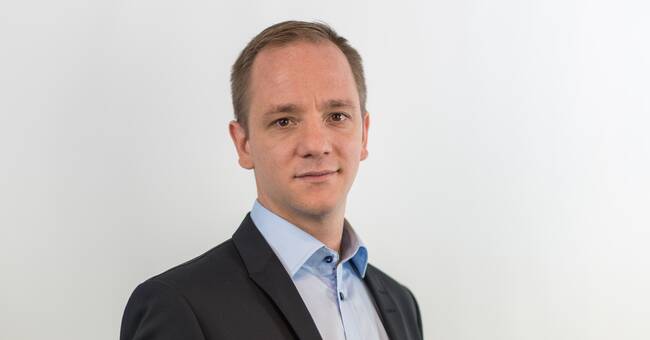The relationship between the EU and the US is better than in a long time.
There is a decent consensus on the climate here and this weekend came the news of a ceasefire in the trade conflict over steel and aluminum.
The US promises to allow an import quota and the EU promises to start phasing out countermeasures.
Biden and Macron had their own meeting where Biden stated that the United States has no better friend than France.
Maybe it was not enough to heal the wounded French feelings after the submarine deal, where the US, Australia and the UK signed a pact and sniffed France on a multi-billion deal, but the signal was clear: We are together again.
A meeting was also held where Biden and his European allies - Merkel, Johnson, Macron and Draghi, talked about Iran and the nuclear deal, which the United States withdrew under Trump and which they now want to try to revive.
The West alone cannot dictate the direction
In short: the EU and the US are good friends - but the world no longer looks so that they alone can dictate the direction.
To move forward on important global issues, all G20 countries need to be involved.
And then it gets harder.
Russia's Putin and China's Xi Jinping chose not to even attend the meeting, but attended a video link.
The tone between the USA and China was sharp over the weekend, not least around Taiwan.
When it comes to the pandemic, it was promised that 70 percent of the world's adult population will be vaccinated before the end of next year.
But the road there is very long.
While there is talk of a third dose in the United States and Europe, only a few percent of people in many poor countries are vaccinated.
Fuzzy climate promises
The divided world also characterizes the climate issue to a very high degree.
India and China say they must be given a chance to catch up economically first, before committing to drastically reducing emissions.
The main responsibility for climate change rests with the rich west, they say.
Admittedly, the G20 countries agreed that the goal of limiting global warming to 1.5 degrees should be "within reach".
This is a small increase in ambition compared to the Paris Agreement and means that the leaders will not be completely empty-handed for the climate summit in Glasgow, which starts tomorrow.
But when it comes to concretizing how it should go, it becomes more fuzzy.
The meeting reiterated the promise that the rich part of the world will contribute $ 100 billion a year to help low-income countries with climate change.
A patch that does not completely manage to cover the wound that was once again exposed at this weekend's G20 meeting.
In the face of global challenges, the world is divided.
The leaders did not set a date for when the world will reach net zero emissions.
There were proposals for the year 2050, but in the final text it was adopted diffusely "in the middle of the century".
China, India and Australia also do not want to commit to any concrete promises to phase out coal.

